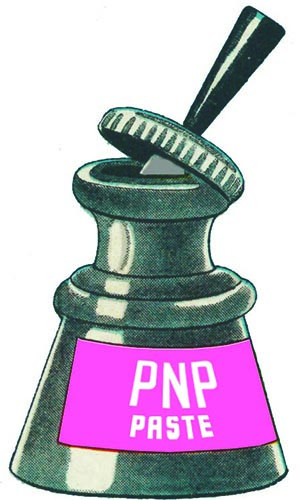If it is true, as they say, that people always love talking about themselves, why do author biographies always seem the hardest part of any piece of writing to actually write? It can hardly be natural reticence (I spend a good part of an article trying to draw attention to myself) or forgetfulness (Alzheimer’s hasn’t set in yet). Is it, then, authorial integrity, a desire to distil everything that needs to be said perfectly in the article, story, essay, or poem itself, so that anything coming after would be superfluous? Don’t make me laugh.
Perhaps it is an awkwardness, like posing for a camera and preparing an insincere smile. Somehow, no matter how hard you try, the facts don’t seem to come, the biography as it comes out is not quite right. It would be easier to attend one’s funeral than write about yourself in an author biography, and more pleasant, too, for your only duties at your funeral would be to be an inanimate corpse while others talked about you, except I suspect if ever I decided to attend my own funeral, some bastard would get me to write my own biography.
There’s something in that, though: getting to hear what others say about you. This is exactly the pleasure you don’t have when you write your own biography. And things would definitely be improved if you got to write biographies about others in a detached and calm mood of magisterial disinterest. The more disinterested, the better: 'Gary is a complete and utter bastard and also owes me a dollar' [1] would make a good biography to read, don’t you think? More so than 'Gary lives in Caulfield with his girlfriend. He is a tutor in writing at....'
It is not just that it would be wrong to lie; it’s that even if you decided to lie about yourself, you would end up catching yourself out in the act of lying to yourself about yourself. It is so much nicer to lie about other people and have them lie about you—not the obvious lies of fact, but the less obvious lies inherent in flattery and the language of critical appreciation. Self-flattery is such a valuable luxury that it only works when other people are doing it for you.
But no, you are left with that blank page of paper, and still the words don’t come or, when they do, they seem pointless statements of the mundane (which you hardly wish to have your life seem like). It becomes tempting to list things up like achievements: 'Tim has a BA, an MA, a lovely wife, two cats, and eczema.' (I haven’t tried that one yet). And what’s all this writing about myself in the third person about, anyway? That’s what Caesar did, and look how he ended up. [2]
Not all authors have to supply a biography. Long-dead authors—who you’d have to think had the most biography of all—never have to bother. Genre writers, poets, and short story writers seem to be amongst those most bothered by the pesky demand for an autobiography; other writers seem to have to do little more than supply their name, or anything to that purpose that they happen to find lying around. Or there is the author photograph. If all you had to do was pose for a photograph (rather than a biography), I would be quite happy to oblige. I would procure a pipe and tobacco (you have to be smoking the pipe in the picture or it’s not worth it) and practice my grumpy old man scowl while pulling at the hairs of my beard to make sure it is as long as it can possibly be.
But can you imagine if these innocuous biographies had to be applied to classical writers? Homer ('lives in Ithaca with his wife. When he does not spend his time barding he takes his dogs for a walk....'), or St John? ('You might find him in the third cave from the left. When the world ends he is going to live forever and laugh at you while you fry.')
Author biographies can be quite unbalancing, too; they may not seem so to those who habitually write long-form essays or novellas, but to poets and dealers in aphorisms and epigrams, they really get in the way. Pope took exactly 29 words to pen the following perfection:
Sir! I take it as a general rule
That every poet is a fool
But you yourself will serve to show it
That every fool is not a poet.
Biographies often take twice as many words without being nearly half so interesting.
There is no conclusion to this little essay on the irritations of the jejune writer’s biography, aside from the obvious: that as a writer, generally it is much more advantageous to be dead than alive.
I guess that’s something for us all to look forward to.
TIM TRAIN, MELBOURNE
Tim has a BA, an MA, a lovely wife, two cats, and eczema.
- Astute readers may notice at this point that this does not exactly fit the definition of disinterested. You know what I hate almost as much as writing an author’s biography? Definitions!
- Astute reader: Conqueror of the British isles and father of the first Emperor of Rome? Tim: Dead! And stop answering rhetorical questions.
Even supposing Mr Sandow was an author, a biography would clearly be entirely redundant. Eugene Sandow [Prussian bodybuilder]. Albumen photograph by Henry Goldman, 1902. State Library of Victoria, H96.160/708.


![Even supposing Mr Sandow was an author, a biography would clearly be entirely redundant. Eugene Sandow [Prussian bodybuilder]. Albumen photograph by Henry Goldman, 1902. State Library of Victoria, H96.160/708.](https://images.squarespace-cdn.com/content/v1/53466e80e4b0dd9f736dc5a3/1429092920455-0ZDXLW7CYCW8KMBBZ3P0/image-asset.jpeg)